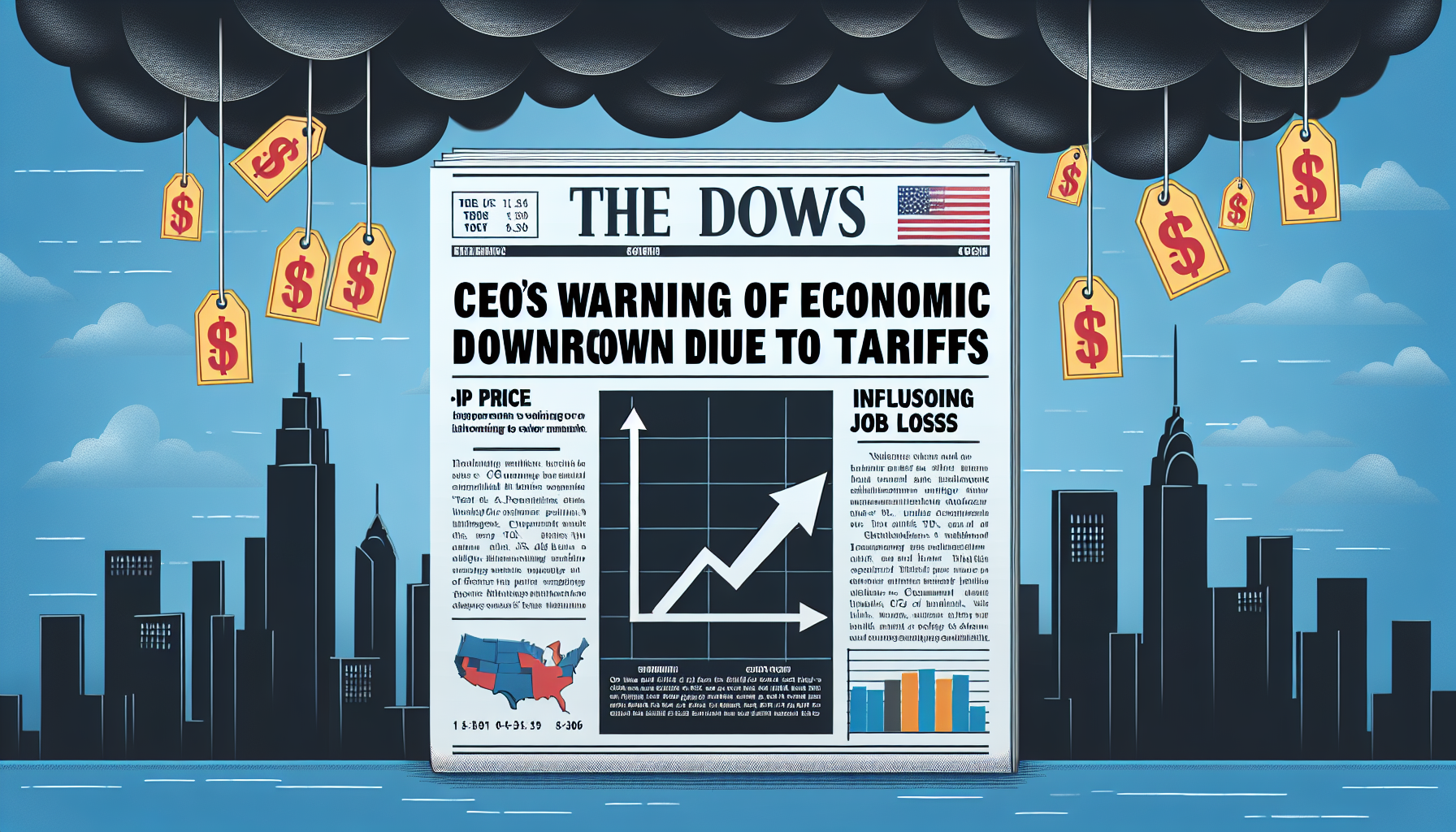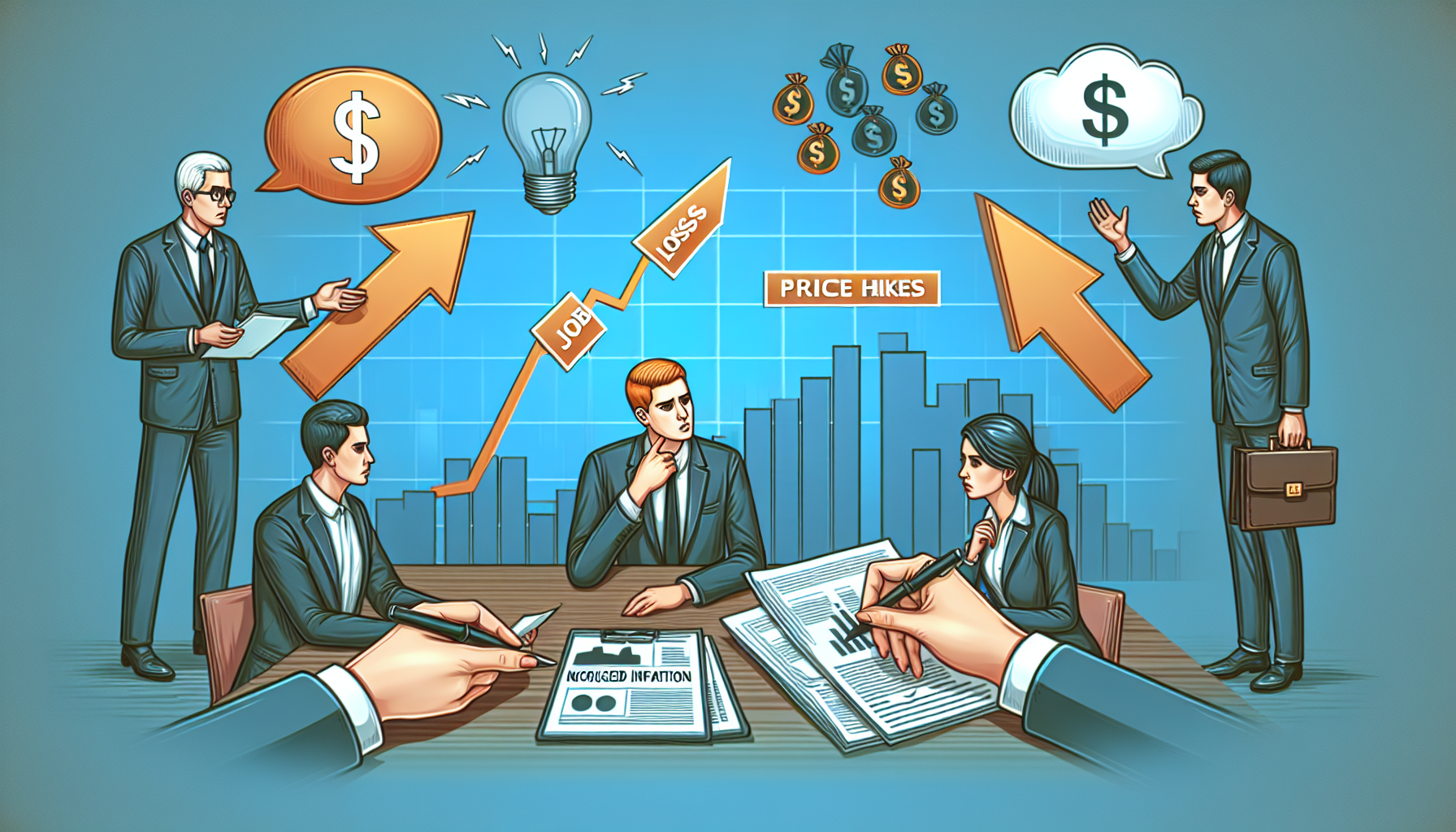The Trump Recession: CEOs Predict Price Hikes, Job Losses, and Economic Downturn
The business world is bracing for a potential economic storm as CEOs warn of an impending recession, rising prices, and job cuts following President Trump's aggressive tariff policies. A recent CNBC flash survey of its CEO Council members reveals widespread concern among corporate leaders, with many labeling the looming crisis the "Trump recession." This article explores the key findings, market reactions, and long-term implications of these policies.
CEOs Sound the Alarm: A Recession Is Coming
According to the CNBC survey, 69% of CEOs expect a recession, with over half predicting it will strike this year. While most believe the downturn will be moderate rather than severe, the sentiment aligns with growing pessimism among financial leaders. JPMorgan recently raised its recession odds to 60%, signaling heightened economic instability.
Key Concerns from Corporate Leaders
- Job Losses: 37% of CEOs anticipate workforce reductions, with another 14% considering cuts.
- Price Increases: Nearly all CEOs selling goods and services foresee price hikes between 5% and 20%.
- Resurgent Inflation: 82% expect inflation to rise, further squeezing consumer spending.
Market Turmoil and Investor Uncertainty
The announcement of sweeping tariffs triggered a market panic, with the S&P 500 dropping 10% in just two days. Federal Reserve Chair Jerome Powell described the tariffs as "significantly larger than expected," warning of slower growth and higher inflation. CEOs echoed these concerns, with many expressing frustration over the lack of coherent trade strategy.

CEO Reactions: Anger, Confusion, and Fear
Corporate leaders voiced strong criticism of the administration's approach:
- "Disappointingly stupid and illogical," one CEO remarked.
- Another accused Trump of surrounding himself with "incompetent yes men."
- Many fear retaliatory boycotts against American brands overseas.
Global Backlash and the Threat of Boycotts
CEOs with international operations worry about rising anti-American sentiment. One executive, whose company generates 40-45% of sales abroad, warned of "real backlash happening." Others fear stagflation—a toxic mix of stagnant growth and inflation—if foreign consumers reject U.S. products.
Services Sector at Risk
While tariffs traditionally target goods, the modern economy is increasingly service-driven. One CEO noted that countries may now restrict foreign-based services to boost domestic employment, posing a new challenge for U.S. tech and cloud computing firms.
Short-Term Pain vs. Long-Term Reshoring Gains
The Trump administration argues that reshoring manufacturing will eventually offset short-term economic pain. However, CEOs remain skeptical:

- 45% believe reshoring will take at least two to three years.
- Many are delaying or scaling back construction projects due to higher material costs.
- Only 25% believe tariffs will ultimately benefit the economy.
Conclusion: What This Means for the Market
The combination of CEO pessimism, market volatility, and global trade tensions suggests rough waters ahead. If uncertainty persists, businesses may continue freezing investments, exacerbating economic slowdown risks. Investors should monitor inflation data, job market trends, and any shifts in trade policy for signs of stabilization—or further decline.

